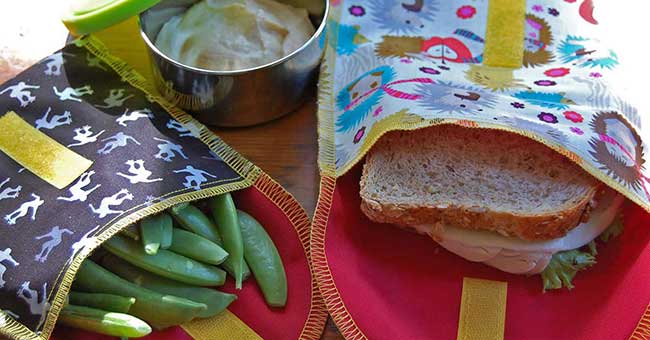A waste-free lunch means that you have no trash to throw away when you're done (just compostables such as apple cores, banana and orange peels). The best way to reduce trash is to not create it.
Print the EPA's wonderful waste-free lunch flyer to post at your school or office - and here are great tips for launching a waste-free-lunch program at your school.
Teachers, learn about how you can become a food waste warrior! (WWF)
YES |
NO |
|---|---|
NO throw-away bags |
|
REUSABLE leakproof containers |
NO plastic wrap, aluminum foil or styrofoam |
THERMOS for drinks |
NO single-use cartons or cans |
CLOTH NAPKIN to wash and re-use |
NO paper napkins |
SILVERWARE to wash and re-use |
NO plastic forks and spoons |
ALUMINUM SOFT DRINKS |
The world's uses about 180 billion aluminium cans every year. This is 6,700 cans every second - enough to go around the planet every 17 hours. |
ALUMINUM FOIL |
600,000 tons of aluminum foil is produced every year in America (880,000 tons in Europe). A large amount of electricity is used in manufacturing foil. The EPA reports that in 2018, the US discarded about 2.7 million tons of aluminum. |
SANDWICH BAGS |
Every day, over 20,000,000 sandwich bags from school lunches are thrown away. |
PAPER BAGS AND NAPKINS |
Every ton of recycled paper can spare 17 trees, 380 gallons of oil, 4,000 kilowatts of energy, 7,000 gallons of water and three cubic yards of space at the landfill (more paper stats). |
PLASTIC BOTTLES AND SINGLE-USE PRODUCTS |
Around the world, one million plastic bottles are purchased every minute. In total, we produce about 400 million tonnes of plastic waste every year - and half of all plastic produced is used just once and then thrown away. (UNEP) |
STYROFOAM |
The world produces more than 14 million tons of styrofoam each year. Styrofoam is non-biodegradable, harms the marine environment, and releases toxins into hot food and beverages. The best way to protect the environment is to stop using it. |
BANANA AND ORANGE PEELS |
As food decomposes in a landfill, it generates harmful greenhouse gases such as methane (try composting or vermiculture!) |
